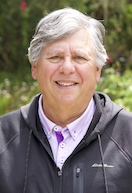 Gilbert H. Newman, PhD
Gilbert H. Newman, PhD
Vice President for Academic Affairs
gnewman@wi.edu
BA Social Phenomenology, Windham College, 1975
MA Clinical Psychology, Goddard College, 1980
PhD Clinical Psychology, The Wright Institute, 1996
Dr. Newman is the vice president for academic affairs at the Wright Institute. His clinical training began in 1973 with the Philadelphia Association in London, England, where he spent two years working in innovative residential settings under the tutorial instruction of the eminent anthropologist, Francis Huxley, and with the supervision and guidance of several existential-phenomenological psychotherapists including, R. D. Laing.
In 1977, he became the founding assistant director of Burch House, Inc., a residential alternative psychiatric facility in New Hampshire serving people who were acutely psychotic, suicidal, or suffering with other serious mental illness. Moving to California to attend the Wright Institute, Dr. Newman trained at the Wright Institute Clinic and at the Superior Court, Alameda County, Family Court Services. Between 1989 and 1996 he was employed at the Institute for Labor and Mental Health providing assessment and psychotherapy services for physically and psychologically disabled workers. He also worked for the UC Berkeley, School of Public Health where he was a Section Editor for the California Wellness Guide.
Dr. Newman is clinically active as a member of the medical staff at Contra Costa County Health Services volunteering four hours per week at a primary care clinic providing direct patient care. Incorporating contemporary multicultural perspectives, he has expertise in crisis intervention, addiction, trauma, serious mental illness, and relational problems. He works with individuals, groups, and couples. Dr. Newman has had extensive experience in program development, evaluation, consultation and accreditation. Included among his many program development projects are the Integrated Health Psychology Training Program, the Wright Institute Assessment Service, the Sanctuary Project, and the California Psychology Internship Council of which he was the founding and former executive director.
Dr. Newman’s current interests include the growing phenomenon of family secrets being revealed through genetic testing, services for older adults, primary care psychology, graduate psychology education, and health service psychology political advocacy. Dr. Newman is active in the American Psychological Association (APA) and recently completed a six-year term as a member of the Commission on Accreditation and continues serving as the regional coordinator for legislative advocacy related to psychology education and training; he has also served in a myriad of other leadership roles at APA including Chair of the Board of Educational Affairs, and Chair of the Committee of State Leaders. He is a member of the National Register of Health Service Psychologists and is a lifetime member of the California Psychological Association, of which he was the President in 2006.
Dr. Newman is the recipient of numerous honors and awards. They include the Education Advocacy Distinguished Service Award from APA in recognition of his long standing personal and professional commitment to gaining federal funding for psychology education and training, as well as his efforts to raise student awareness of the value of advocacy to psychology; the Karl F. Heiser Presidential Award from APA’s Division 31 recognizing his legislative advocacy work for state and federal laws; and the Silver Psi from CPA recognizing his outstanding service to the Association.
A dedicated grandfather, father, husband, friend and co-worker, Dr. Newman enjoys his work, family time, golf, and gardening. He is the son of a Jewish immigrant whose family barely escaped Eastern Europe following the 1919 pogrom. Dr. Newman is the first in his family of origin to attend a 4-year college and to attain an advanced degree.
